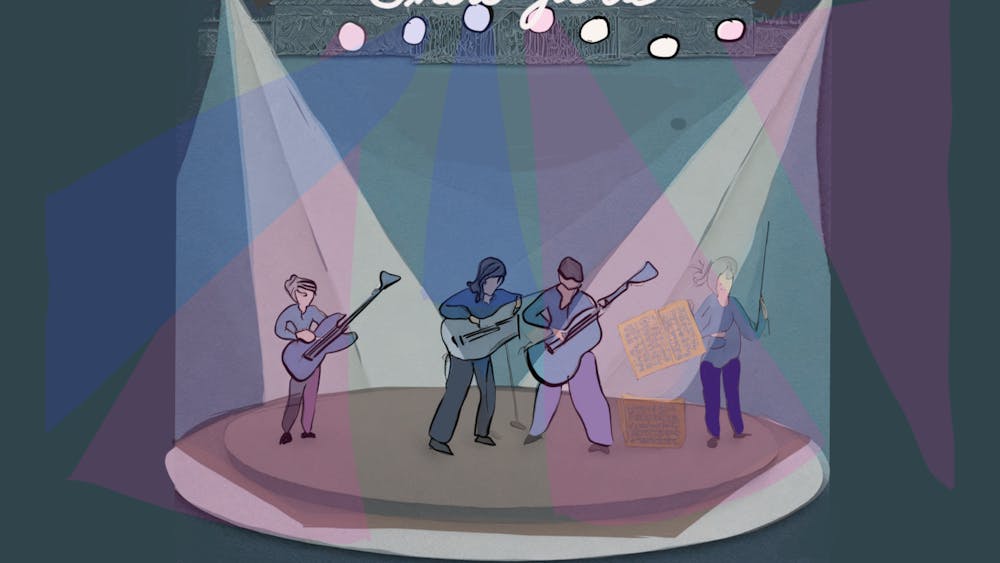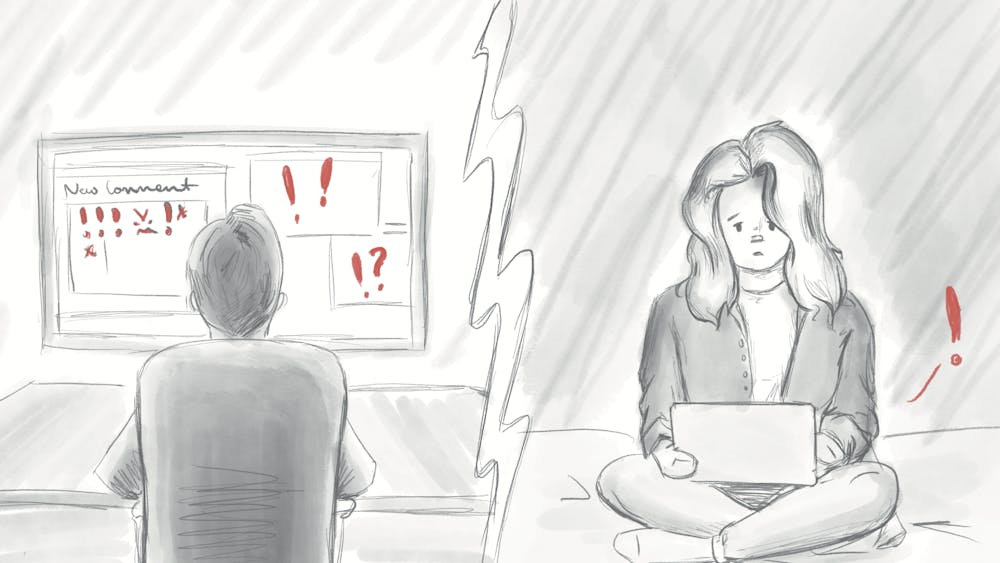Award-winning pianist Edmund Battersby performed a two-hour concert Saturday night for a densely packed Auer Hall. The program featured pieces by the 18th-century Classical composer Joseph Haydn and the 19th-century Romantic composers Robert Schumann and Franz Schubert.
Battersby’s many recordings, the most recent of which was a re-release of shorter pieces by Schubert in 2013, have garnered critical acclaim from the New York Times and the online classical magazine Musical America, among others. In 1992, the pianist’s recording of Spanish composer Enrique Granados’ suite, “Goyescas,” was shortlisted for a Grammy.
Critics have not been the only ones to regard Battersby in high esteem.
Kanar Abrahamyan, a concert-goer and Jacobs student, said the pianist’s playing on Saturday night was sublime.
“I enjoyed the lyrical stuff,” she said. “Especially the Haydn and the Schumann Opus 82. He had this very stylistic, more conservative, traditional Haydn classical playing.”
An Austrian composer, Joseph Haydn was a contemporary of Wolfgang Mozart and one of the most celebrated and prolific composers in Europe by the time of his death, having written over 100 symphonies and 13 operas in addition to many other works. Known as the “Father of the Symphony,” Haydn redefined musical standards and forms. These developments were seen in the first piece of Battersby’s program, the Sonata in C Minor.
“This sonata is unquestionably one of Haydn’s masterpieces in the genre,” wrote critic Joseph Renouf on his website, the Critic’s Ear. “The Haydn C Minor sonata surpasses its immediate predecessors and successors ... in part owing to its greater length and structural complexity.”
Robert Schumann composed his Opus 82 Waldszenen in the years 1848 and 1849.
The piece, a series of nine vignettes representing different images from the forest such as hunting, flowers and birds, appeared during the 19th-century Romantic period of music.
This was the same era during which composers such as Ludwig van Beethoven and Hector Berlioz wrote works now commonly regarded as masterpieces for their extreme subjectivism and portrayal of dramatic, fantastic experiences.
In 2012, Battersby released an album of Schumann pieces entitled “The Early Romantic Piano: Schumann and Chopin,” even though the album did not contain the Waldszenen. Audiences were nevertheless pleased by this inclusion in the
program.
“It was interesting,” audience member Ani Abrahamyan said after the performance. “I really liked it.”
After taking a brief intermission with the conclusion of the Schumann compositions, Battersby finished the concert with two pieces by the Austrian composer Franz Schubert, the Klavierstücke No. 1 and 2, and the demanding “Wanderer Fantasy” in C Major.
“Drei Klavierstücke,” Schubert’s name for three solo pieces he wrote in 1828, are not performed as often as many of the composer’s other works. Still, musicians have regarded the Klavierstücke as integral additions to Schubert’s prodigious body of work.
“It’s just incredible, really,” English pianist Paul Lewis said in a 2011 podcast for the Guardian. “A longingly introspective theme of radiance and beauty.”
Battersby closed the concert with Schubert’s “Wanderer Fantasy,” a piece known by audiences more for its formidable difficulties than for its lyricism. Commonly considered to be the composer’s most technically challenging piano composition, Schubert himself found these difficulties too great, famously remarking during a concert that “the devil may play it, for I cannot.”
Battersby received a standing ovation at the close of the “Wanderer Fantasy.”
“It was just amazing,” Abrahamyan said. “I think it brought out the strengths of the performer very well.”
Pianist Battersby performs
Get stories like this in your inbox
Subscribe





